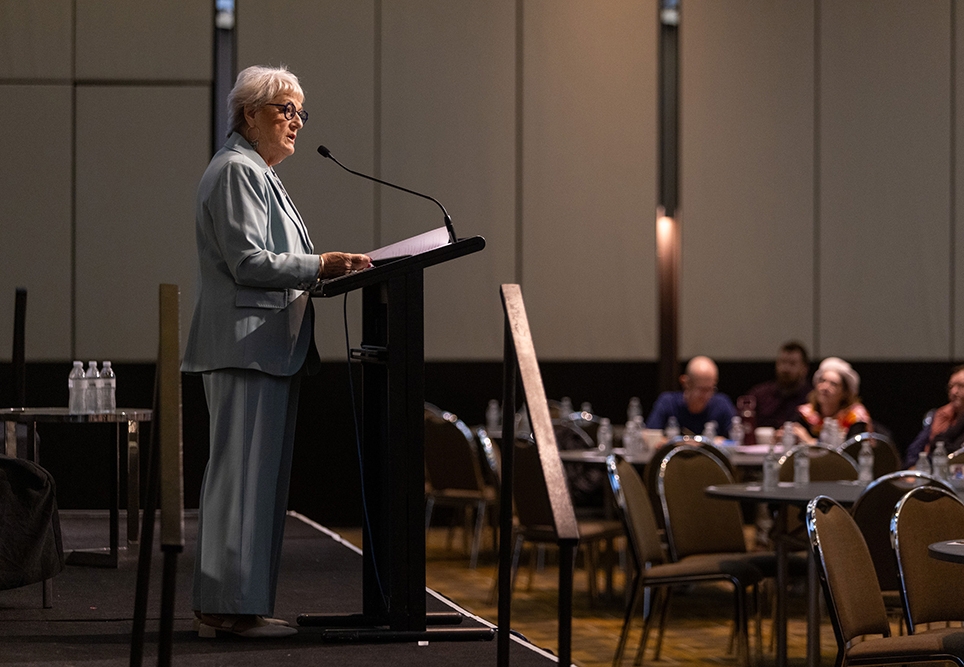
Not-for-profit NPS MedicineWise has developed three new resources to promote quality use of medicine (QUM) in the provision of medicines to residents of remote Aboriginal and Torres Strait Islander communities.
The resources are part of the S100 Remote Area Aboriginal Health Services (RAAHS) Program and were developed in consultation with a range of stakeholders. Their release coincides with the release of our April 2022 Magazine.
What new resources are available?
NPS MedicineWise’s new Online Resource Hub is designed to help health professionals, including nurses and Aboriginal health workers, to navigate state, territory, and local variations, by providing curated information and links to tools and resources related to:
- Policies, state legislation and scope of practice
- Medication management, including ordering transport and stock management
- Clinical tools and resources including health professional and consumer resources
- Templates/information focused on medicine supply and administration.
Eleanor McKean, Educational Visitor with NPS MedicineWise and former Thursday Island-based Pharmacist, knows how challenging it can be to find the correct information.
“There is a lot of information out there, but it’s across so many different websites that unless you know what you’re looking for exactly… and even then, it can sometimes be extremely difficult to find,” she says.
“Our curated hub is designed to be a one-stop-shop… [so] you don’t have to do a Google search and go through 50 different things to see if it’s what you wanted.”
In collaboration with NT Health, NPS MedicineWise has also developed a Drug Room Audit, modelled on the NT Health PHC Drug Storage Room Audit, that could be utilised across all primary health care sites.
This resource provides a standardised approach for centres to ensure appropriate storage conditions and stock control, while promoting overall quality use of medicines.
“By having procedures in place such as an audit to check that, for example, your fridge temp-erature is being monitored correctly, that means that we might see less wastage,” Eleanor says.
The final resource is a QUM checklist for hand- over documents to upskill new staff commencing work in RAAHS. It includes information on contact details for pharmacy services and the processes of medication transport, including in case of a cold chain breach.
“There’s often a lot of staff movement,” Eleanor says. “If there’s [an onboarding checklist] that’s there in the primary health centre (PHC) ready to go it can help reduce some of that transition when a new person comes through.”
Managing transitions of care
With relevant information often being hard to locate, the risk as a health provider is that you do something that’s not approved in your current site.
“That might get brought up as a complaint to a health service, and it could also cause delays in patients receiving appropriate medications,” Eleanor says.
These delays can arise due to a lack of coordination between health services during transitions of care, which is an issue these resources are intended to remedy.
“Patients may come out of a hospital in a large centre, where maybe they were prescribed something that’s not available to them in their local community,” Eleanor says.
“They get back to the community and may not have access to that for an extended period; for example, if it has to come by a barge and it takes a week. There may also be seasonal issues with flooding and access.
“Also, non-PBS (Pharmaceutical Benefits Scheme) medicines aren’t covered under the Section 100 Indigenous Supply Scheme, which is how most people get their medications in these remote communities.
“That means that if you are treating something with a medication that’s not on the PBS it may require a payment… are patients able to pay? And, if they’re getting it from a state-run primary health centre, who do they pay? Is there a facility to take payment?
“Some sites reduce this by having non-PBS items on their local formulary.”
Reducing pressure on nurses
Long-term nurses often have the deepest under-standing of local medication usage and supply.
However, unless they are nurse practitioners, they cannot supply unless a medication is written on a drug chart by a prescriber – a situation that can highlight grey areas around scope of practice.
“A lot of remote area health centres don’t have doctors, so they have nurses and Aboriginal health professionals having to do jobs they’re not traditionally trained for,” Eleanor says.
“Given the extended scope of practice in remote settings, [health professionals may be] doing prescribing and supply of medications, counselling on medications, acute care in a way that wouldn’t necessarily occur in a larger centre. All these things are creating pressure.
“The sheer number of visiting practitioners who often don’t understand local context can add pressure. That local knowledge is important to ensure the prescribers aren’t prescribing medications that are difficult to get.”
NPS MedicineWise’s resources are designed to provide clarity; to give access to CARPA or PCCM depending on the site’s preference, or to clarify what authorities are required to prescribe medications. This will hopefully reduce stress and improve health outcomes, by ensuring timely provision of the correct medicines in the correct dosages.
“[These resources may] also potentially lead to improved communication – if people follow the links to cultural competence courses we provide as part of the web hub” Eleanor said. “This may mean people who are receiving medications better understand what they’re for, how to use them, how to dispose of them safety.”
Navigating the medical labyrinth with confidence
“Nurses and AHPs are the backbone of most primary health centres,” Eleanor concludes.
“They’re the ones on the ground, treating everything from birth through to death. Having all these resources means they have places to go when they’re facing something unfamiliar – which they probably will.”


